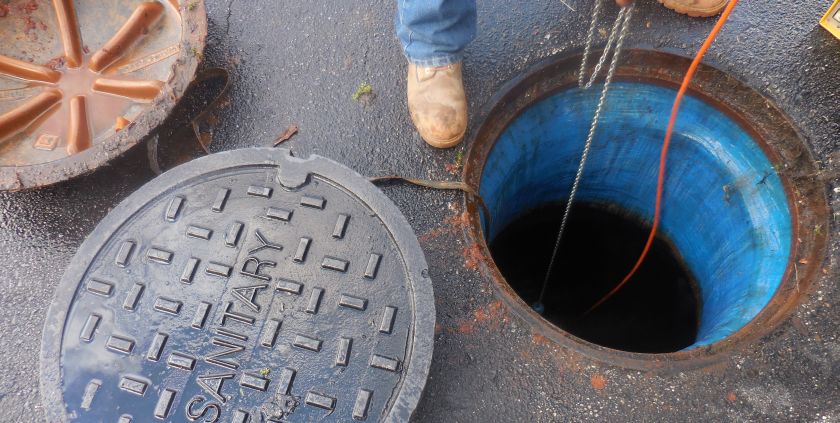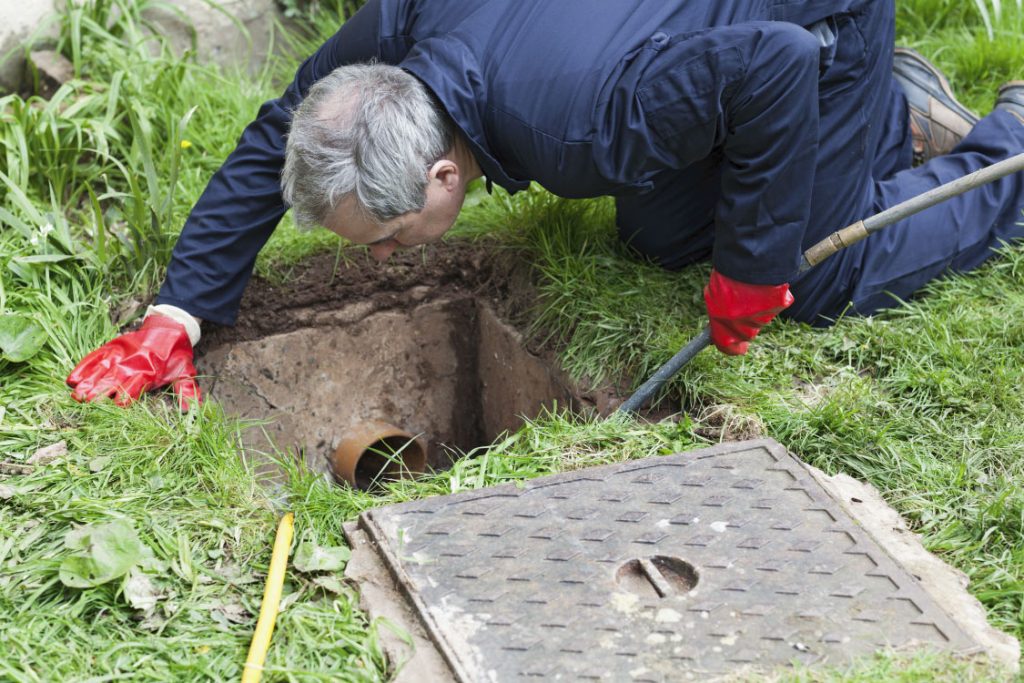Pointers for Managing a Blocked Drain Prior to Contacting Experts
Pointers for Managing a Blocked Drain Prior to Contacting Experts
Blog Article
This great article directly below involving 8 Tips For Clearing A Blocked Drain is incredibly fascinating. Don't skip it.

Intro
Handling an obstructed drain can be an irritating experience, interrupting daily activities and possibly triggering damage to your residential or commercial property. Nonetheless, prior to reaching out to pipes specialists, there are actions you can require to address the problem on your own. In this overview, we'll explore do it yourself services and safety nets to deal with a blocked drainpipe successfully.
Recognizing the Problem
The initial step in attending to a blocked drainpipe is acknowledging the indications. Slow water drainage, gurgling sounds, foul odors emanating from drains pipes, or water support up prevail signs of a blocked drain. Recognizing these indicators early can help avoid additionally issues.
Common Root Causes Of Blocked Drains
Recognizing the variables that contribute to drain obstructions is vital for efficient resolution. Typical culprits consist of hair, soap residue, grease, food particles, and foreign things like sanitary items or paper towels. Tree roots invading below ground pipes can also create substantial clogs.
DIY Solutions
For small clogs, a number of do it yourself services can be reliable. Pouring boiling water down the drain can help liquify grease and particles. Baking soda and vinegar or a combination of salt and baking soft drink can function as all-natural cleansers. Using a bettor or plumbing snake to remove blockages is one more alternative.
Tools and Devices
Having the right devices available can make DIY drainpipe cleansing extra reliable. A bettor is a versatile device for clearing blockages in sinks, bathrooms, and showers. A plumbing serpent or auger can get to deeper obstructions, while drain cleaning chemicals can be utilized meticulously for stubborn obstructions.
Safety nets
To stay clear of future obstructions, adopting safety nets is essential. Set up drain guards or filters to catch hair and debris before they go into the pipelines. Consistently flush drains with warm water to liquify oil accumulation, and avoid getting rid of grease or strong waste down the drain.
When to Call an Expert
While DIY services can deal with minor obstructions, particular indications show the demand for expert aid. Relentless clogs, foul odors regardless of cleansing efforts, or several drains pipes supporting concurrently are warnings that necessitate expert intervention.
Picking the Right Pipes Service
When choosing a plumbing solution, think about variables such as experience, licensing, and consumer testimonials. Select a trustworthy plumbing technician with a record of high quality workmanship and transparent rates methods.
Expense Factors to consider
The price of professional drain cleaning services can differ relying on the extent of the clog and the plumbing professional's rates. Request quotes from numerous companies and inquire about any type of additional charges to make certain openness and stay clear of surprises.
Safety Precautions
When attempting DIY drain cleaning, prioritize safety and security. Wear safety gloves and eyewear to avoid contact with harmful chemicals or bacteria. Never blend various drain cleansing products, as this can create dangerous fumes.
Case Researches
Real-life examples highlight the performance of DIY remedies and the value of timely specialist treatment in dealing with drainpipe obstructions.
Conclusion
By adhering to the suggestions outlined in this overview, you can successfully take on blocked drains and stop future pipes issues. Whether choosing do it yourself services or seeking specialist aid, punctual action is crucial to maintaining a healthy and balanced pipes system and maintaining the integrity of your home.
How to Clear a Clogged Drain Yourself (And When to Call In the Professionals)
What Can Clog a Drain
Dirt Skin flakes Hair Grease Soap scum Food Offset pipes Tree roots Small objects Mineral buildup DIY Tricks to Unclog a Drain
You can fix this! Once you have identified the source of the clog (or have a vague idea), you can try one or a combination of these fixes in order to clear your plumbing.
Wire Hanger or Snake
Untangle and clear out hair from a drainpipe with a homemade snake. Use a straightened-out wire hanger with a 90-degree angle hook to locate the clog and drag out any unwanted material.
Remember not to push the clog further down to where the wire hanger cannot reach! If you need to follow up with a plunger, give it a try. Your efforts might be more successful after it’s been wire-snaked.
If you want to get fancy and don’t have a wire hanger to spare, head to the store and pick up a hand-operated drain snake. You can get one for $10-$30. It may save you the hassle, and provide additional length to reach deep into the clogged pipe.
Plunger
A cup plunger has a suction cup attached to a wooden handle. The rubber creates a seal around the drain, and increases the pressure force of the plunger.
Plunge for 30-second increments to loosen the clog. This may need to be repeated over the course of 15-20 minutes. Once plunged, run the water to flush the remaining material out of the drain.
Remember– never use a plunger if you have used a chemical drain cleaner. These chemicals can splash up from the force of the plunger and cause serious injury or burns.
Boiling Water
Hot water can sometimes break up materials into a flushable amount. Dirt, grease, and soap buildup requires heat in order to unstick from surfaces.
Take your kitchen kettle and heat your water to a boil. Once it reaches a rolling boil, pour it directly down the drain into the blockage. Carefully follow with plunging, if necessary.
Don’t worry if this takes more than one try! It can often take multiple kettles and repeated plunging in order to clear a particularly stubborn clog.
Chemical Drain Cleaner
As a last resort, pick up a bottle of chemical drain cleaner. Drain-cleaning chemicals are potent, and not very good for the environment.
You may need to wear protective eyewear in gloves before handling your bottle of chemical drain cleaner. Follow the instructions printed on the bottle, and flush with water as soon as the instructions allow. Do not follow with plunging.
Baking Soda and Vinegar
As a safer alternative to chemical drain cleaner, baking soda and vinegar can create a chemical reaction that clears tough clogs.
Combine one cup of cleaning vinegar with one cup of boiling water, and set aside. Once you have done this, pour half a cup of baking soda down the drain. Give the baking thirty seconds to settle and cover a large portion of the problem drain.
Following the baking soda, pour down your vinegar and hot water solution. Once the vinegar and baking soda combine, the mixture will bubble and fix. Let this reaction fizzle in the drain for about an hour.
After an hour, follow with a kettle’s worth of hot water. The heat and liquid should flush out any remaining material.
When to Call a Plumber
If your DIY attempts haven’t cleared your clog drain, it’s time to call in a professional. It’s not worth losing access to your kitchen sink or high-traffic bathroom. A clog in a vital area can keep you from the things you’d rather be doing, and derail your routine.
Anytime a clog is causing water to spread is a time to call in a plumbing service. What starts out as a little bit of water can quickly grow into serious, expensive water damage.
Additionally, a serious clog can result in burst pipes or serious leaks. Make sure you know when to take it seriously!
https://myguysnow.com/how-to-clear-a-clogged-drain-yourself-and-when-to-call-in-the-professionals/

Do you appreciate reading about How to handle a clogged drain in your home? Create a comment directly below. We would be pleased to listen to your feelings about this write-up. We hope that you visit us again later on. Don't hesitate to pause to share this write-up if you enjoyed it. We cherish your readership.
Customer Reviews Report this page